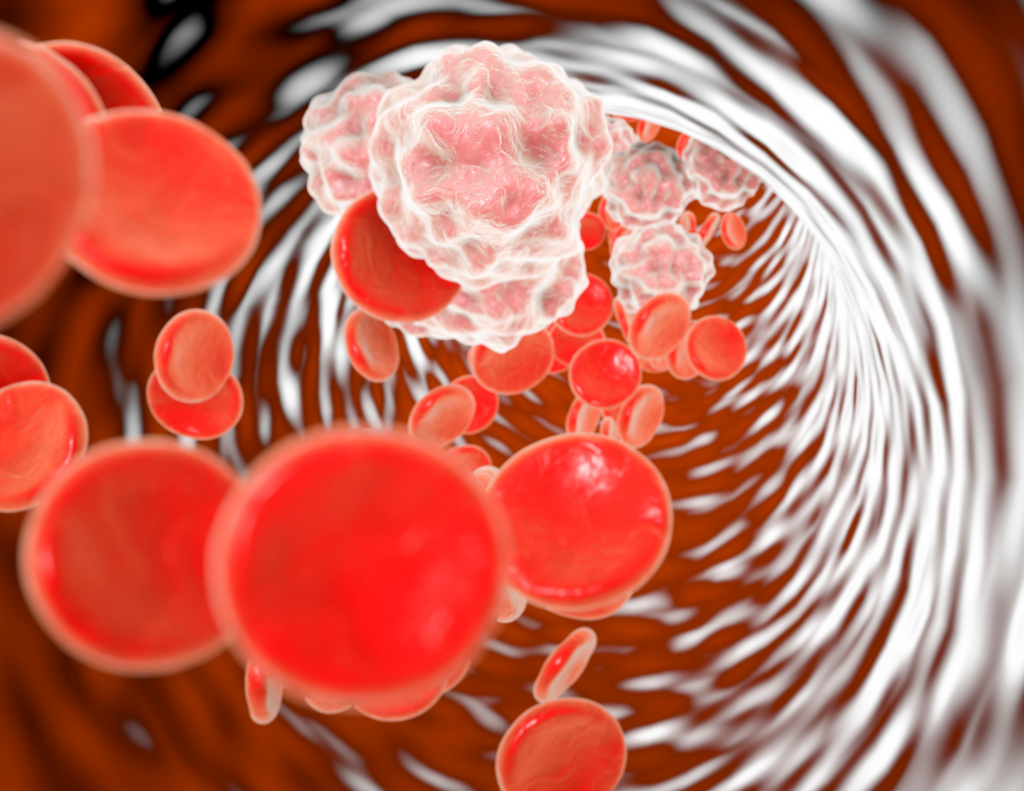Reducing Inflammation Through Functional Medicine

Inflammation is a natural process in the body, serving as a defense mechanism against infection and injury. However, chronic inflammation can lead to various health issues, including autoimmune diseases, cardiovascular diseases, and metabolic disorders, which is why focusing on reducing inflammation is important. Functional medicine, with its holistic approach, offers effective strategies to reduce inflammation through dietary and lifestyle changes. This blog explores the sources of inflammation and provides practical tips to manage it.
Understanding Inflammation
Acute vs. Chronic Inflammation
Acute Inflammation is a short-term response to injury or infection. Symptoms include redness, swelling, heat, and pain, which are part of the healing process. For example, a cut on your finger becomes red and swollen as your body works to heal it.
Chronic Inflammation is a prolonged inflammatory response that can last for months or even years. It often results from persistent infections, prolonged exposure to irritants, or autoimmune responses where the body's immune system attacks healthy tissues. Chronic inflammation is linked to diseases like arthritis, diabetes, heart disease, and Alzheimer's.
Sources of Inflammation
Dietary Factors
- Processed Foods: High consumption of processed foods, rich in trans fats, refined sugars, and artificial additives, can trigger inflammatory responses. These foods lack essential nutrients and are often loaded with substances that promote inflammation.
- Sugar and High-Fructose Corn Syrup: Excessive sugar intake, especially from sugary beverages and snacks, can lead to increased levels of inflammatory markers in the blood.
- Refined Carbohydrates: Foods like white bread, pastries, and other refined carbs can spike blood sugar levels, leading to increased inflammation.
- Omega-6 Fatty Acids: While essential in moderation, a diet high in omega-6 fatty acids (found in many vegetable oils) relative to omega-3 fatty acids can promote inflammation.
- Food Allergens: Common allergens such as gluten, dairy, and certain food additives can cause inflammatory responses in sensitive individuals.
Lifestyle Factors
- Sedentary Lifestyle: Lack of physical activity can contribute to chronic inflammation. Regular exercise helps reduce inflammatory markers.
- Chronic Stress: Prolonged stress leads to the release of stress hormones like cortisol, which can increase inflammation.
- Poor Sleep: Inadequate sleep affects the body's ability to regulate inflammation.
- Environmental Toxins: Exposure to pollutants, chemicals, and other environmental toxins can contribute to inflammation.
ARTICLE CONTINUES BELOW
Schedule a Consultation TODAY!
We would love to sit down with you and chat about your experiences and current pain points.
Getting to the Root Cause: Underlying Infections
One of the key principles of functional medicine is identifying and addressing the root cause of health issues, including inflammation. Often, chronic inflammation is a result of underlying infections that may go unnoticed or untreated.
Common Underlying Infections
- Bacterial Infections: Conditions like Lyme disease, chronic sinus infections, and certain gastrointestinal infections can lead to persistent inflammation.
- Viral Infections: Viruses such as Epstein-Barr virus (EBV), herpes simplex virus (HSV), and human papillomavirus (HPV) can trigger chronic inflammatory responses.
- Fungal Infections: Chronic yeast infections, including Candida overgrowth, are known to cause inflammation in various body systems.
- Parasitic Infections: Parasites like Giardia and Blastocystis can inhabit the gut and contribute to inflammation and digestive issues.
Functional Medicine Approach to Underlying Infections
- Comprehensive Testing: Functional medicine practitioners use advanced diagnostic tests to identify hidden infections. These tests might include blood tests, stool analyses, and specialized pathogen screenings.
- Targeted Treatments: Once an infection is identified, a functional medicine practitioner can recommend targeted treatments. This may include antimicrobial herbs, specific supplements, and dietary adjustments to support the immune system and eradicate the infection.
- Immune System Support: Strengthening the immune system is crucial in fighting infections and reducing inflammation. This includes optimizing gut health, reducing stress, and ensuring adequate sleep and nutrition.
- Lifestyle Modifications: In addition to addressing the infection directly, functional medicine emphasizes lifestyle changes that support overall health and reduce inflammation. This includes regular exercise, stress management techniques, and avoiding environmental toxins.
Reducing Inflammation Through Functional Medicine
Functional medicine emphasizes a personalized approach, addressing the root causes of inflammation rather than just the symptoms. Here are several strategies to reduce inflammation:
Dietary Changes
- Anti-Inflammatory Diet: Adopting an anti-inflammatory diet is crucial. This includes:
- Fruits and Vegetables: Rich in antioxidants and phytochemicals, fruits and vegetables help combat inflammation. Berries, leafy greens, and cruciferous vegetables like broccoli and Brussels sprouts are particularly beneficial.
- Healthy Fats: Incorporate sources of omega-3 fatty acids, such as fatty fish (salmon, mackerel), flaxseeds, chia seeds, and walnuts. Olive oil and avocados are also excellent sources of healthy fats.
- Whole Grains: Opt for whole grains like quinoa, brown rice, and oats instead of refined grains.
- Herbs and Spices: Turmeric, ginger, garlic, and cinnamon have potent anti-inflammatory properties.
- Nuts and Seeds: Almonds, walnuts, and seeds provide healthy fats and antioxidants.
- Elimination Diet: Identify and eliminate foods that trigger inflammation. Common culprits include gluten, dairy, soy, and nightshade vegetables. Reintroduce them gradually to determine which ones affect you.
- Balanced Blood Sugar: Maintain stable blood sugar levels by eating balanced meals with a mix of protein, healthy fats, and complex carbohydrates. Avoid sugary snacks and beverages.
- Hydration: Proper hydration supports overall health and helps flush out toxins that can cause inflammation. Aim for at least eight glasses of water daily. Adding lemon or herbal teas can also be beneficial.
Lifestyle Changes
- Regular Exercise: Engage in regular physical activity, such as walking, swimming, or yoga. Exercise helps reduce inflammatory markers and supports overall health. Aim for at least 150 minutes of moderate exercise per week.
- Stress Management: Practice stress-reducing techniques such as mindfulness, meditation, deep breathing exercises, or hobbies you enjoy. Chronic stress significantly contributes to inflammation.
- Adequate Sleep: Ensure you get 7-9 hours of quality sleep each night. Establish a regular sleep schedule, create a calming bedtime routine, and keep your sleeping environment conducive to rest.
- Detoxification: Reduce exposure to environmental toxins by using natural cleaning products, avoiding plastic containers, and choosing organic foods when possible. Support your body's detoxification processes through regular exercise, proper hydration, and a nutrient-rich diet.
- Social Connections: Strong social connections and a supportive community can reduce stress and improve overall well-being, indirectly helping to manage inflammation.
Functional Medicine Testing and Solutions
- Comprehensive Testing: Functional medicine practitioners often use comprehensive testing to identify underlying causes of inflammation, including food sensitivities, hormonal imbalances, and gut health issues.
- Gut Health: The health of your gut microbiome plays a crucial role in inflammation. Probiotics and prebiotics can support a healthy gut flora. Fermented foods like yogurt, kefir, sauerkraut, and kimchi are beneficial.
- Personalized Supplements: Based on individual needs, supplements such as omega-3 fatty acids, curcumin, and antioxidants can help reduce inflammation. Work with a healthcare provider to determine the best supplements for you.
- Biohacking Techniques: Utilizing science and self-experimentation, techniques like intermittent fasting, cryotherapy, and red light therapy can optimize health and reduce inflammation.
Conclusion
Reducing inflammation through functional medicine involves a comprehensive and personalized approach. By understanding the sources of inflammation and making strategic dietary and lifestyle changes, you can significantly improve your health and reduce the risk of chronic diseases. Functional medicine provides the tools and knowledge to address the root causes of inflammation, promoting long-term wellness and vitality.
Remember, the journey to reducing inflammation is unique for everyone. It's essential to work with a healthcare provider to create a plan tailored to your specific needs and health goals. By taking proactive steps and embracing a holistic approach, you can achieve a healthier, inflammation-free life.
Schedule Your Telehealth Consultation
We would love to sit down with you and chat about your experiences and current health complaints.
The information on this website has not been evaluated by the Food & Drug Administration or any other medical body. We do not aim to diagnose, treat, cure or prevent any illness or disease. Information is shared for educational purposes only. You must consult your doctor before acting on any content on this website, especially if you are pregnant, nursing, taking medication, or have a medical condition.

By Dr. Todd W. Bunning
Dr. Todd W. Bunning’s Chiropractic and Functional Medicine services reach far beyond the local Roseville area, with webcam consultations available for patients in any location. With over 21+ years of Private Practice experience, Dr. Todd continues to focus on the individual: science-based methods to address whole-body health factors.
Dr. Todd’s education didn’t stop when he graduated from Life West Chiropractic College in 2003. Today, he’s continuing to receive training and is chipping away on numerous post-graduate degree programs. This unique blend of clinical health investigation and Lifestyle Medicine application helps people of all ages find the underlying factors that result in chronic disease.